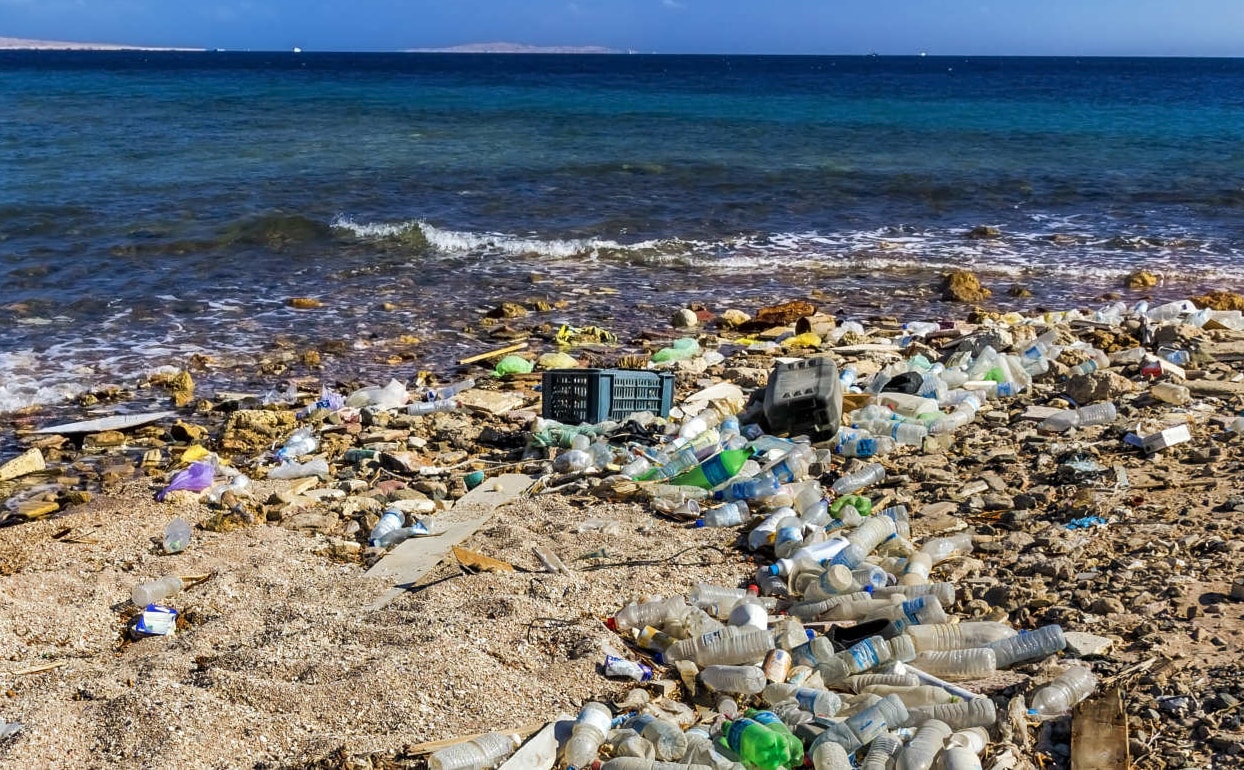More than 8 million tonnes of plastic are dumped in our oceans every year.
One in three species of marine mammals has been found entangled in marine litter.
Over 90% of all seabirds have bits of plastic in their stomachs.
Plastic pollution is growing exponentially every year. We are producing more than 300 million tonnes of plastic; half of this is designed for single use, and each year around 8 million tonnes of it ends up in our oceans.
Since decomposition of a plastic bag can take upwards of 400 years, they’re not going anywhere fast. Furthermore, plastic products never experience true decomposition. Rather, plastic breaks down into smaller and smaller pieces known as microplastics.
Studies have shown that most plastic pollution in the ocean is made up of these microscopic bits of trash. In fact, in 2017 alone, more than 1,000,000,000,000 pieces of microplastics were collected in beach clean-ups worldwide.
The toxic microscopic bits of plastic are digested by marine life and move up the food chain, impacting on human health. It has been suggested that these toxins contribute to some cancers and infertility, as well as immune, metabolic, cognitive and behavioural disorders.
An example of the impact on sea life was recently proven in a study of 370 leatherback sea turtle autopsies; one out of every three had stomachs infested with plastic bags. This is not surprising since sea turtles spend most of their lives foraging on algae, jellyfish, and unfortunately — bits of plastic. Plastic bags, resembling traveling jellyfish, seem to be the main culprit when it comes to the sea turtle’s demise.
Source: https://plasticoceans.org/
Let’s do our bit to reduce plastic pollution in our seas. The canteen in Durban will be swapping plastic cutlery, straws and polystyrene containers for biodegradable containers.
Grindrod Shipping focused on environmental issues
During 2017 and 2018, Grindrod Shipping installed water filters and rolled out a water management system onto its ships.
The water filters, which allows for evaporated sea water to be filtered and converted to drinkable water, were placed in the galley, laundry and drinking fountains and each crew member was issued a stainless-steel thermos flask. The filter systems ensure that the quality of water is better than bottled water. On board testing kits are also used to monitor and verify the water produced.
In the past, bottled water was supplied to the vessels as drinking water. The used bottles were then crushed and landed as part of the ships garbage. Ships garbage, by international conventions is tightly regulated. Garbage needs to be logged and segregated into the different categories and landed to recognised receivers. These receivers issue certificates of acceptance, that are recorded in the Garbage record book aboard.

